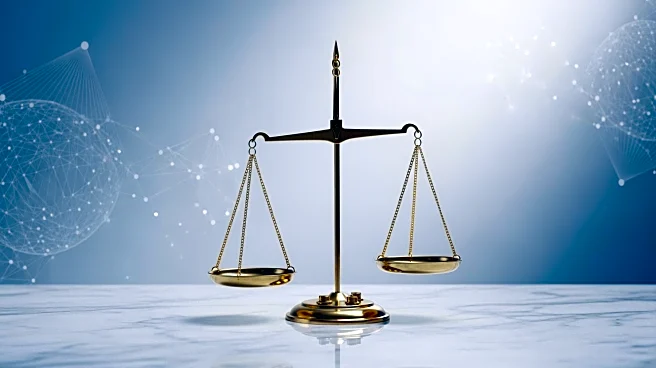What's Happening?
Taiwan's Vice President Bi-Khim Hsiao has called on the European Union to enhance security and trade relations with Taiwan, emphasizing the importance of supporting its democracy in the face of increasing
threats from China. During a rare address to international lawmakers in Brussels, Hsiao highlighted the critical role of peace in the Taiwan Strait for global stability and economic continuity. She urged collaboration on trusted supply chains and AI technology, noting the shared democratic values between the EU and Taiwan. Despite the lack of formal diplomatic ties, the EU opposes any military force by China to resolve its dispute with Taiwan. Hsiao's visit was part of a conference organized by the Inter-Parliamentary Alliance on China, aiming to strengthen international coordination on China-related policies.
Why It's Important?
The call for closer ties between Taiwan and the EU is significant as it underscores the geopolitical tensions in the region, particularly with China's increasing military activities around Taiwan. Strengthening ties with Taiwan could help the EU secure its semiconductor and electronics supply chains, which are crucial for various industries. The move also reflects a broader strategy to counter China's influence and support democratic values globally. The EU's engagement with Taiwan, despite the 'One China' policy, highlights the delicate balance between economic interests and political principles. This development could influence international relations and trade policies, potentially affecting global markets and diplomatic strategies.
What's Next?
The EU may consider further steps to enhance its relationship with Taiwan, potentially leading to increased trade agreements and security collaborations. This could provoke reactions from China, which views Taiwan as part of its territory. The international community, including the United States, might also respond by reassessing their policies towards Taiwan and China. The situation could lead to heightened diplomatic tensions, requiring careful navigation to avoid escalation. The EU's actions could set a precedent for other countries in their dealings with Taiwan, influencing global diplomatic and economic strategies.
Beyond the Headlines
The deeper implications of Taiwan's call for closer EU ties involve the ethical and cultural dimensions of supporting a democratic nation under pressure from an authoritarian regime. This situation highlights the challenges faced by democracies in maintaining their sovereignty and the role of international alliances in preserving democratic values. The long-term impact could include shifts in global power dynamics, with increased emphasis on forming alliances based on shared values rather than purely economic interests. The EU's response to Taiwan's appeal could influence its standing as a defender of democracy on the global stage.








